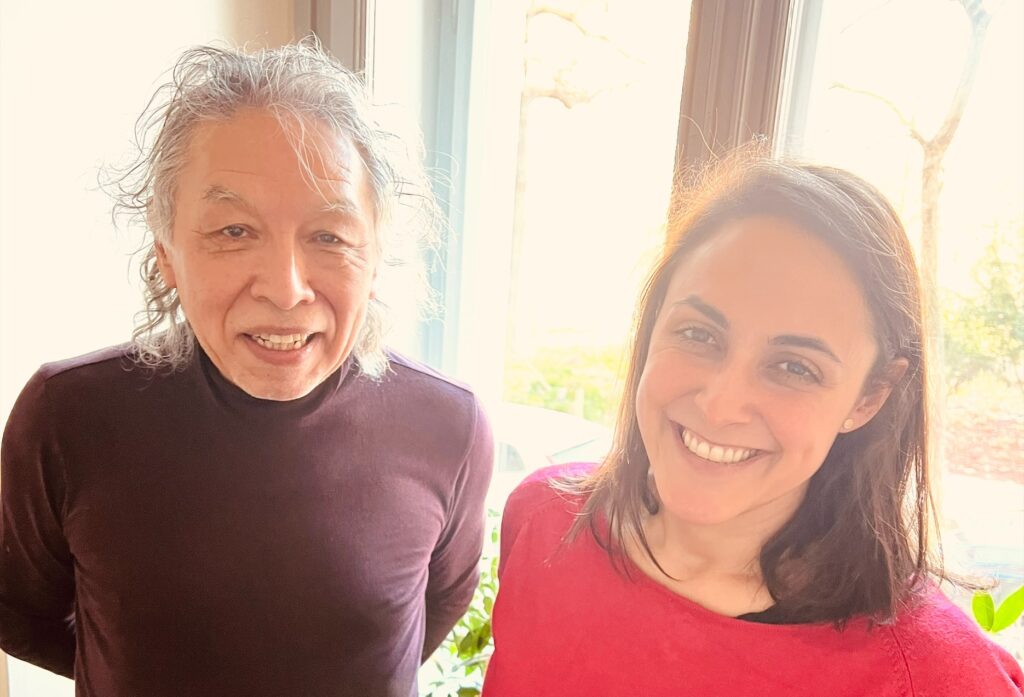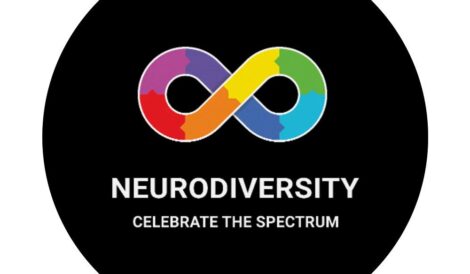- Posted on
Love Unfiltered: How Do Technology, Economy and Lifestyle Affect Our Romantic Relationships?
Welcome to Prague Integration, where Marta and Daniel, our seasoned mental health counsellors, offer specialised services for expats in Prague, Czech Republic. In this article, we explore couple counselling from a fresh perspective through insightful interviews with Marta and Daniel.

Marta Soto Soria, hailing from Spain with over a decade of experience in Prague, specialises in perinatal, couple and family therapy. Daniel Espitia, a certified Gestalt Therapist and mindfulness meditation instructor, brings a unique blend of therapeutic approaches, including cognitive and linguistic processing.
Together, Marta and Daniel offer a wealth of expertise in couple counselling, addressing modern challenges and providing innovative strategies for healing and growth. Join us as we delve into their insights into the intricacies of relationships and the transformative power of counselling.
Cultural Shifts and Couple Dynamics
How do cultural shifts, such as the rise of individualism, impact the dynamics within couples seeking counselling?
MARTA: Those who seek only to consume and satisfy their needs avoid anything that involves making an effort. A relationship is a long-distance race, which needs time to get to know each other, care and a project for a shared future, where “WE” has space and not just the “I”. And the desire to accompany each other beyond the initial attraction and affinity.
In counselling, I feel a certain polarisation with the issue of individualism, to the point of getting lost within the couple. Individualism and mutual commitment can and must coexist together. It is the ability and will to create a common space where we can care for each other, but without losing our identity. It is building a “WE” where the Self is not blurred.
Changing Trends in Relationship Dynamics
Do you see individuals being more selfish in relationships than 5-10 years ago?
DANIEL: First, the word selfish has gotten much bad publicity but is rather neutral. I first want to clarify that understanding. There is a positive aspect of “selfish” which is, to come into awareness of my own needs, wants and desires. When people come into a relationship, it is usually because their perceived needs, wants and desires, are symmetrical to the other. Individuals form relationships not just because of this symmetry but because the promise of synergy is even greater, such as greater emotional balance, company and financial stability.
The word selfishness in a relationship – in a negative sense, refers to someone who frequently disregards the needs, wants or desires of the other, to focus primarily on his/her own. We often refer to this behaviour as self-centred, or someone with a “me.. me…” predominant narrative.
In this sense, I see in the past decade(s) individuals having greater awareness of their good selfishness and they are better at knowing, understanding and communicating what they need, want and desire. Are they more good-selfish? Yes, they are, and this is good. I see this as a sign of greater self-knowledge and raised awareness.
When individuals stick to their bad habits of the bad-selfish type, I see this as a sign of relative emotional immaturity, poor self-observation and insufficient self-reflection, as if they are the centre of the universe which is clearly an illusion. This bad-selfish should be due to become an extinct species. Unfortunately, it may still take a while.
Generational Differences in Relationship Challenges
In your experience, do you observe differences in relationship challenges faced by couples of different generations (e.g., Millennials, Gen Z) compared to older generations?
DANIEL: Let me first glimpse all these generational stereotypes. Generation X are those born between the 1960s and 1980s, Millennials – somewhat overlapping Generation Y, are born roughly between the early 1980s and mid-1990s, Generation Z, born from the mid-1990s to the early 2010s, and current newborns of Generation Alpha are born between 2010s and mid-2020s. Therefore, I assume the following will be the Generation Beta.
Some of the landmarks that have made these generations different have to do with a redefinition of family over the past century as well as technological change which has changed dramatically how we access information, how we communicate with each other, how we transact with society in general and how we participate in communities. This has brought as a result not just an increased globalisation in goods but also in ideas, perceptions and perspectives. We are now a global village, with all its advantages and disadvantages.
There has also been a shift in spiritual perspectives, a move towards greater integration and tolerance, but also it highlights how much different and intolerant we are. Also, the perceptions of individual privacy are quite different for newer generations. At the same time, there is an increased global consciousness.
So, of course, we are different across these generational artificial lines, and this constitutes an enormous advantage. And relationships are a microcosm of all those changes. The most significant changes I observe are in terms of openness and, more recently awareness of physical and mental health, we have a new discourse. More and more I observe younger couples coming for therapy, in anticipation of attenuating future conflicts, and people in general, especially those familiar with therapy, are more in touch with personal growth process, more than older generations. And this also presents an opportunity for cross-generational learning.
Perspective on Divorce Rates
What is your opinion on the high divorce rate between couples?
DANIEL: Well, to opine on the divorce rate it is also useful to look at the marriage rate. Overall, far more people get married than divorced. In the US the marriage rate is 6 in 1000 people, while in Europe is about 4 per 1000. And yes, the divorce rate has doubled, and this means in the US now less than 1 per 1000 people divorce and in Europe less than 2 per 1000. So, is it really high rate of divorce? Not if compared with yet higher rate of marriage.
The main reason for divorce has been documented as being a lack of commitment of at least one person in the marriage, followed by infidelity (meaning non-exclusive sex). People often describe the reasoning as “irreconcilable differences”, which after a decade of living together is quite understandable for many couples.
But the reality that the numbers provide is that there are more people getting married than divorced.
Impact of Social Media on Relationship Expectations
With the prevalence of social media, how do unrealistic relationship expectations portrayed online affect couples seeking counselling?
MARTA: Social networks influence us and cause us to become confused; after accepting a studiously perfect photo as normal, it is complex to accept our own imperfect “photo” with its lights and shadows. In therapy, when they come looking for the perfect “photo”, we delve into the necessity and positive aspects of moments of disagreement, discomfort and disputes within the couple, as long as they are maintained in a respectful and healthy way, learning that we also grow when we go through crises. For a few years now it seems that any emotion that causes us discomfort must be rejected or hidden and this in the long run will cause us more suffering.
Financial Stressors in Relationships
What role do economic pressures and financial stressors play in relationship conflicts and how do they manifest in your counselling sessions?
MARTA: Money could be used as an element of power and generating money to satisfy your basic needs is related to increasing self-esteem. I consider that these two points are relevant to the conflict that can arise in the couple. A good example would be the time on maternity leave, it is a very sensitive period for the couple that can last for a few years. They decide that one of the members of the couple, mostly the woman, will stay at home taking care of the children while the other works. Added to the normative crisis of parenthood is the tighter economic reality of the couple affecting the relationship.
Another exponent of how stressful the financial situation can be is couples who continue to live together because they cannot afford to separate and come to consultation looking for tools to manage this undesirable situation.
The Evolving Definition of Marriage
How does the changing definition of marriage and commitment in modern society influence the goals couples bring to counselling?
DANIEL: The definition of marriage has shifted on several fronts: economical – now both people in couples work, social – it is more permissible to shift traditional roles, I have male patients to whom I ask what they do for a living and the answer is “I am a husband”. In the past it tended to be more “I am a housewife”; power dynamics – more empowered women at work and home have shifted the ground for responsibility within a household, and the nuclear family usually has both parents at work and engaged with society; sexuality – whereas marriage was predominantly between heterosexual couples now we can include same-sex couples or those who define themselves a non-binary.
How does this influence the goals couples bring to counselling? Because of the above-mentioned factors people in relationships today tend to have a more clear idea of what they want, need and desire and they expect those to be met within the marriage. The one most mentioned reason for couples in therapy is “better communication.” Lack of good communication leads to unnecessary conflict. So, in reality, they are seeking a better way to manage conflict where individuals are more independent even within a marriage. Managing potential conflict well leads to more satisfied relationships. Most of the additional symptoms of trouble in marriage, like lack of intimacy, come from it. And people are more willing to express that intimacy is important, which is what usually gets lost in translation in the midst of conflict.
Some couples make a great effort to get better, they learn techniques, they learn to process, they do their homework, some take notes, ask questions are very engaged. The truth is also that some couples arrive in therapy when already there is little chance of a good return and some of these are expecting the counsellor to solve their issues, to issue a “who is right” or “who is wrong” judgement.
The couples who succeed in therapy are those of the first type, they are engaged and committed to the process and are willing to learn and to show individually where they need to change and adjust.
Technology´s Impact on Couple Dynamics
Do you believe technology, such as dating apps and online communication platforms, has changed the landscape of couple dynamics? If so, how does it affect the counselling process?
MARTA: I would put more weight on cultural shifts than on dating apps as a change of panorama in the dynamics of couples, dating apps can be a wonderful tool to meet people that you would not otherwise have the opportunity to meet. It’s all in how useful you want to make them and what you’re looking for at that moment. The important thing is to be clear about what your standards are when meeting someone. It is a reality that more and more couples who come to therapy have met through a dating app, especially during the time of the pandemic.
Work-Life Balance and Relationship Strain
Can you discuss the impact of work-life balance challenges and career ambitions on relationships, particularly in dual-career households?
MARTA: As a perinatal psychologist I would like to talk about the most obvious impact in dual-career households that occurs in the first years of motherhood when the woman returns to her job and the load becomes unsustainable (full-time job, kids, chores, mental load, etc.). There are many couples who come for counselling at this time, when the kids are 3-5 years old, where the imbalance and distance between the couple within the new family system is evident with the arrival of children. Being able to recognise that it is a difficult and demanding stage for both members of the couple, that the crisis is necessary and that fatigue is on both sides, produces two movements, reuniting as a couple in this new family system and being able to redistribute the burden to a better balance that is perceived as fair and does not generate discomfort and wear.
The couples who are able to see and accept it are the ones who move forward to a better place. When there is no empathy and no validation of the weight the other one carries it is easier to see the couple moving in circles.
Navigating Gender Roles in Relationships
How do societal attitudes towards gender roles and expectations influence power dynamics and conflicts within couples and how do you address these issues in counselling?
DANIEL: Some people are more or less influenced by outside factors, but one that does play a significant role, is their own families and their parents. This occurs whether the parents are involved or not, sometimes parents come as ghosts into the marriage in the form of beliefs, attitudes, and styles of communication. It is important to develop a keen eye for separating who is me as an individual in the relationship and who is the part of me that wants to intrude with beliefs often irrational as if they were a cross-trans-generational mandate.
Though I work mostly with families, i.e., heterosexual couples, I have an increased number of other versions in relationships, and quite honestly many of the same emotional issues are at play. They all seek to be loved and accepted and have a conflict-free relationship. To be in a relationship where they can grow, fulfil their potential and have balance.
I curiously find that couples within the LGBT community tend to be quite direct and honest, down to the bone, as they have already had to redefine who they are outside the boundaries of the traditional heterosexual roles. So in a way, I find it easier to work with them. But I also have heterosexual couples who move to a more sanguine, matter-of-fact discourse and this helps a lot in terms of stating what they see, how they see it, what they want or not, and this is very useful in advancing the goals of therapy.
From my perspective as a therapist, I want to facilitate couples to move towards expressing themselves free of judgement and more clearly between themselves. After all the goals in therapy are achieved because of the realisation and insight they reach themselves when they are not in the therapy room.
Mental Health Awareness and Couple Counselling
With increasing awareness of mental health issues, are you seeing more couples seeking counselling to address individual mental health challenges within the relationship?
MARTA: Fortunately, yes we live in a good time where mental health is in all spheres of society, and at the level of the couple, I see more and more couples seeking counselling for this. We need to understand in order to process what we are experiencing. When one of the members of the couple has mental health problems, it can feel like a fight against an invisible enemy; psychoeducation is essential for these couples. There is a very beautiful moment that happens in therapy, that is when the person with mental health problems feels validated and understood by their partner, you can feel the weight that is lifted from their shoulders.
Promoting the necessary resources and strategies to be able to accompany our partner in moments of crisis will help the couple feel closer to each other, rather than feeling alone while navigating the challenges posed by mental health issues.
Non-Traditional Relationship Structures in Couple Counselling
How do you navigate discussions around non-traditional relationship structures, such as open relationships or polyamory, in the context of couple counselling?
DANIEL: I enjoy listening to couples within non-traditional relationship structures. And I often like to focus on their own process of how they have come to choose or be curious about an alternative model of relationship. This interaction helps bring the underlying issues above and leads to a more conscious conversation.
For many couples, traditional relationship structures have become an obstacle towards their own development and happiness. What is most important for me is to create an environment of trust and openness within the therapy room for these couples to say everything they want to say, how they imagine it, what the issues are, and what the potential conflicts are. And some of these discussions are very entertaining and it is also easier for me to scope potential conflict, and point it out to them.
Having this kind of conscious conversation is helpful not only in the therapy room but I find couples get comfortable with navigating themselves their new narrative.
Couples who have been in open or polyamorous relationships also shift to review these roles if they are considering having a family or having children. What is important for me as a therapist is that couples understand that these are fluid processes, and even if a particular model has been fun for some time, they can readjust.
Marta and Daniel´s interviews shed light on the evolving landscape of modern relationships and the challenges couples face today. From navigating individualism and changing societal norms to managing financial stressors and addressing mental health issues, couple counselling plays a vital role in supporting couples through these complexities. Their insights underscore the importance of open communication, empathy and a willingness to adapt to create fulfiling and sustainable relationships. As we continue to navigate the ever-changing dynamics of modern life, seeking support from experienced counsellors like Marta and Daniel can provide valuable guidance and tools for couples on their journey towards healing and growth.
Our counsellors are here to provide you with a safe space to express your deepest thoughts and concerns without judgement. They’ll offer valuable insights and empower you to navigate the challenges of expat life with greater confidence.



